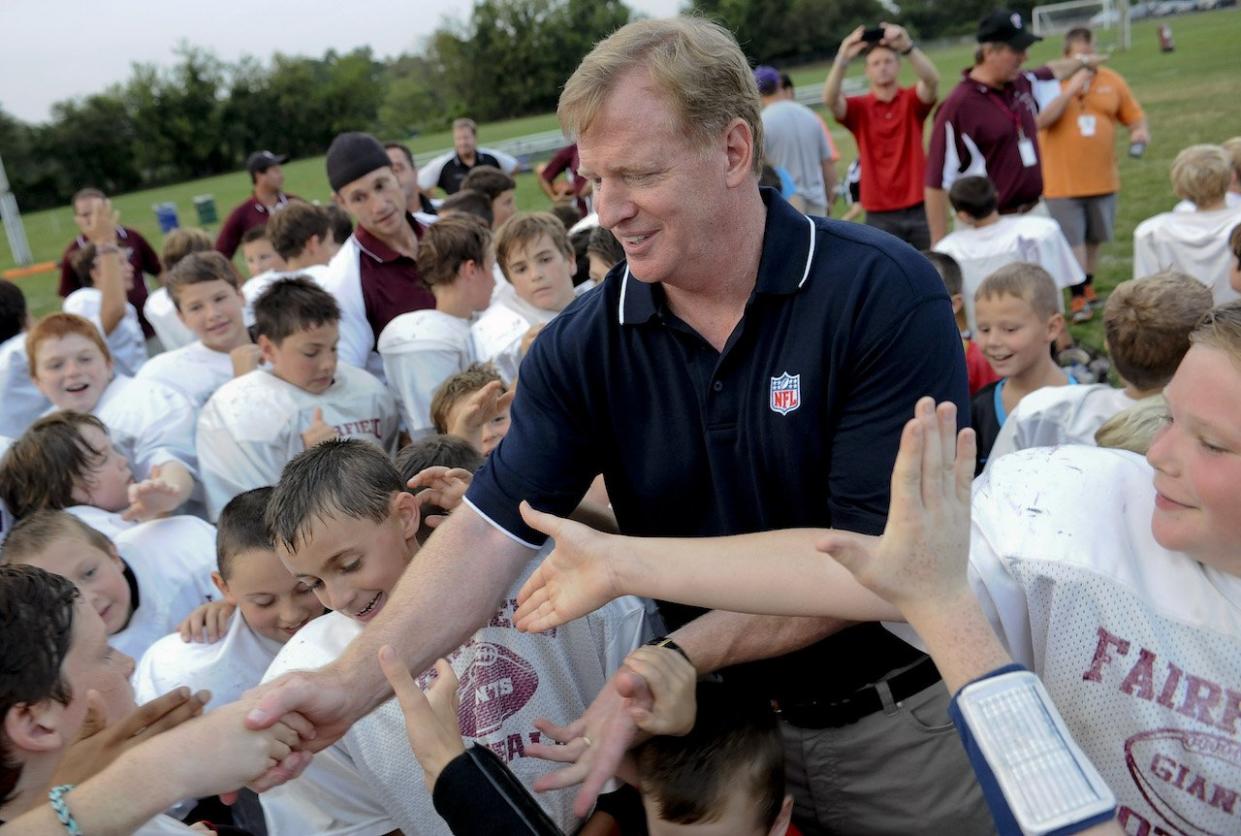NFL-backed youth-football program used incomplete data to reassure parents it was reducing concussions

Jessica Hill/AP
Last year, the NFL and the NFL-funded youth-football organization USA Football widely promoted the findings of a study that, they said, showed 76% fewer injuries and 30% fewer concussions among youth-football programs in Heads Up Football, a league-funded safety initiative for coaches to teach players safer tackling practices.
But it turns out that those numbers were completely inaccurate.
According to The New York Times, which reviewed the study from the Datalys Center for Sports Injury Research, there was no marked decrease in injuries and concussions among youth-football players as a result of Heads Up Football.
When asked to clarify, the NFL and USA Football said that they had unknowingly used figures that they'd received from Datalys before the study was completed.
From The New York Times:
"Both U.S.A. Football and the league said that the questionable data and conclusions were actually preliminary results provided by Datalys five months before the study was published. The lead researchers for Datalys, Thomas Dompier and Zachary Kerr, confirmed in interviews that, despite knowing that the final paper contradicted their preliminary claims, they did not inform U.S.A. Football of this until last month, one day after speaking with The Times.
"Mr. Dompier, the president of Datalys, said in an interview: 'We're the ones that put out the numbers. We're the ones that kind of blew it.'"
In 2014, USA Football commissioned the study from Datalys. In February 2015, the preliminary findings found that programs using Heads Up Football had 34% fewer concussions in games and 29% fewer in practice than programs not using it. These were the numbers that the NFL then proudly promoted, showing the strides it was taking to help make youth football safer.
But in July 2015, when the study was completed, the data showed that programs participating in Heads Up Football made no legitimate difference to player safety. The data did, however, show that Pop Warner Football had made strides in player safety by eliminating certain tackling drills and cutting back on full contact in practices.
Curiously, the NFL and USA Football said that they were unaware of the study's complete findings until The Times informed them of it this week — over a year after its completion. Upon learning this, they stressed that they would update their information to reflect the change.
"'U.S.A. Football erred in not conducting a more thorough review with Datalys to ensure that our data was up to date,' Scott Hallenbeck, the executive director of U.S.A. Football, said in an email to The Times. 'We regret that error.' He added that the material would be removed from the organization's print and online materials, and that 'our partners and constituents' would be notified of the errors.
"Brian McCarthy, an N.F.L. spokesman, said that the league would also include updated information from now on."
Ultimately, Heads Up Football is still a worthwhile program, just as any program teaching player safety to youth-football players is. But promoting false figures, even if unknowingly, doesn't help anyone.
The NFL didn't immediately respond to a request for comment from Business Insider.
NOW WATCH: How Donald Trump helped destroy a pro football league in the '80s
See Also:

 Yahoo News
Yahoo News 

